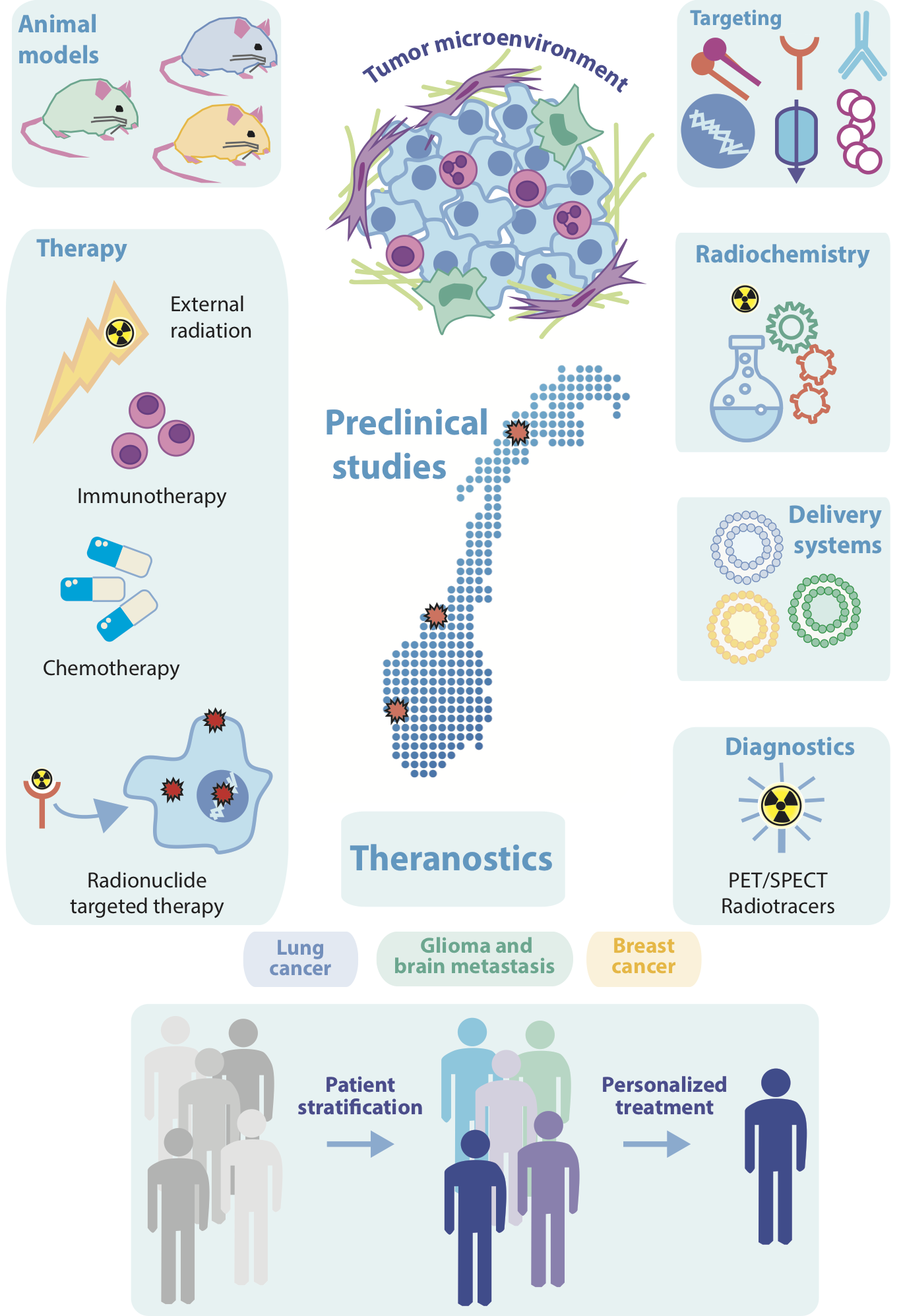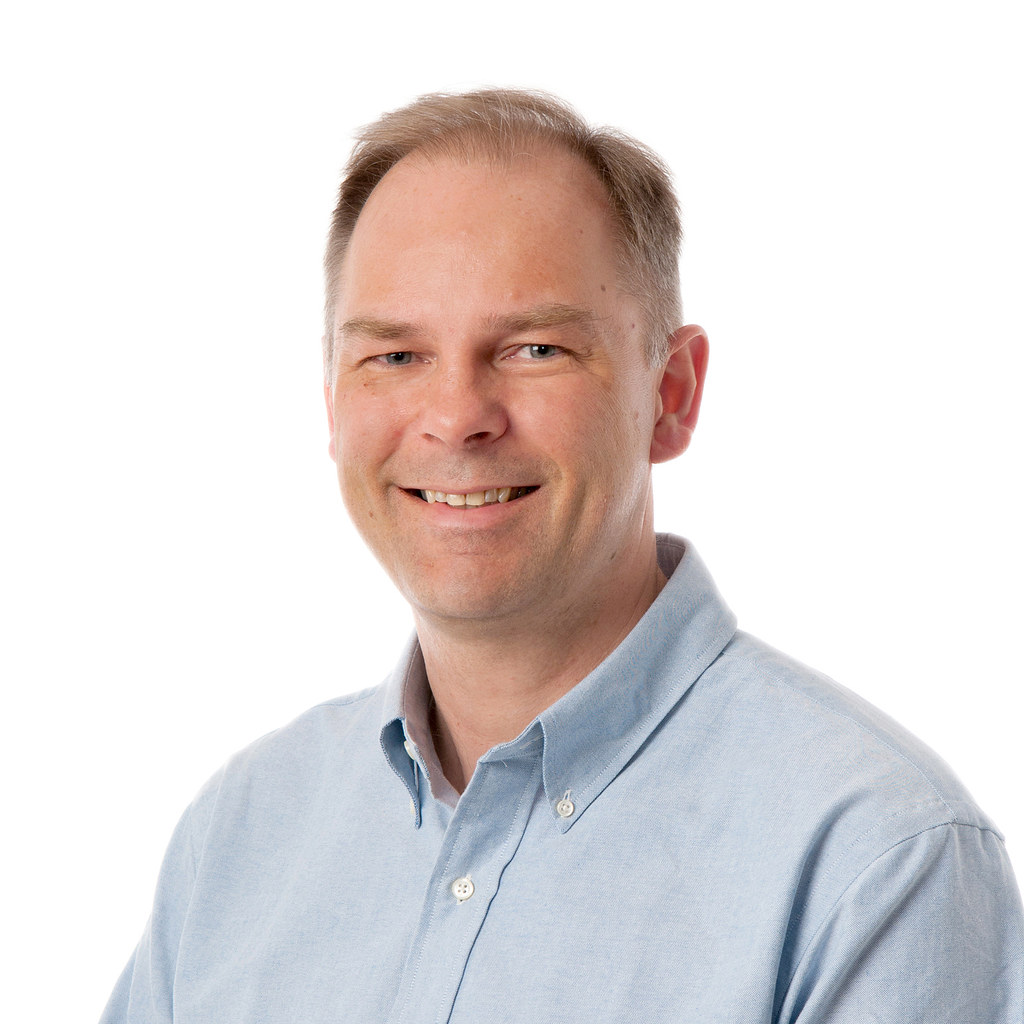180N - Tromsø
Introduction to the project
Despite decades of intensive research in oncology, cancer often remains incurable causing an enormous burden to the patient, health care system and economy. In our aging society, the cancer occurrence will increase and amplify its effects in the future. Hence, intensive research in the development of advanced diagnostic and treatment approaches is needed to enhance cancer management. Multimodality imaging (PET, SPECT, CT, MR) of tumor specific characteristics and their microenvironment is necessary to optimize personalized treatment of cancer. Therefore, the goal of the current project is to develop novel radiotheranostics strategies for imaging and treating cancer patients. Outcomes from this project will ultimately have a pronounced impact on patient selection, guiding treatment strategies in cancer, as well as monitoring the responses to therapeutic interventions, advicing towards personalized medicine.

Towards our goals, a consortium in preclinical research experts between Bergen, Tromsø and Trondheim will be established. Radiopharmaceuticals will be tailored to target tumor specific markers and immune cells participating in the tumor microenvironment of glioblastoma (GB), lung and breast cancer. Strategies for designing and radiolabeling the compounds will be coordinated by the Bergen PET radiotracer development center application. Activities in this project will be multidisciplinary and developed at all three sites. Thus, a close cooperation network in the fields of tracer development, pharmacology, chemistry, (radiation) oncology, (radiation) biology, nuclear medicine, immunology, drug development and machine learning (ML) will be established. To support the theranostic success, conventional therapies such as chemo-, immune- and external radiation therapy will be used as complementary treatments to improve the personalized cancer care in the clinics. In addition, immune-markers are introduced as imaging agents and assessed for optimal selection of therapeutic interventions and treatments. Animal models of cancer will form the basis to investigate the performance of the developed radioligands and to evaluate the anti-tumoral effects of different treatment combinations. Concurrently, to improve quantitative measures and to monitor therapy-induced changes, novel ML methods will be developed and applied to the imaging data. This will be further developed as a clinical tool to facilitate treatment selection and monitoring in routine clinical application.This scientific consortium, with its unique infrastructure and merged experience, will push forward the development of imaging agents, radiotheranostics and patient-specific nuclear therapies. We believe, with the aforementioned efforts, that the treatment burden will be reduced and the patience care significantly improved.
Founders
Partners
LeaderRune Sundset Assoc. Prof., MD, PhD Rune.Sundset@unn.no Rune.Sundset@uit.no Leader, Nuclear Medicine and Radiation Biology Research Group Leader, Preclinical Core Facility Department of Clinical Medicine UiT The Arctic University of Norway Leader, PET Imaging Center University Hospital of North Norway (UNN) |
Steering committeePål Romundstad (Professor, Vice Dean of Research, Department of public health and nursing, Faculty of Medicine and Health Sciences, NTNU) Edmund Søvik (Head of Clinic, Department of Image Diagnostics and Nuclear Medicine, St. Olavs Hospital) Einar Bugge (Director for Quality Improvement and Development, Center for Quality Improvement and Development, UNN) Johanna Sollid (Vice Dean of Research, Faculty of Health Sciences, UiT) Anne Marit Blokhus (Professor, Vice Dean of Research and Education, mat.nat., UiB) Aslak Aslaksen (Professor, Department of Global Public Health and Primary Care, UiB) |
Advisory BoardOle Kristian Hjelstuen (Leader) (CEO, Inven2 AS. Professor II, Institute of Pharmacy, UiT The Arctic University of Norway) Anna Orlova (Professor, Uppsala University, Sweden. Senior lecturer, Department of Immunology) Guy Bormans (Professor, Katholieke Universiteit Leuven, Belgium. Head of the PET center) Mohammed Hankir (PhD Biology, University of Würzburg, Germany) Jørgen Frøkjær (Professor, Århus University, Denmark. Head of Department of Clinical Medicine) |








